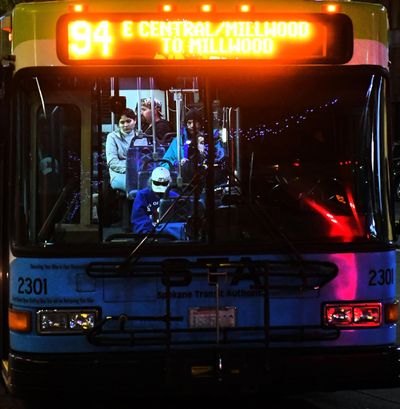Voters approve Prop 1 to fund STA upgrades, Central City Line

Voters overwhelmingly approved Spokane Transit Authority’s Proposition 1, a scaled-back package from a similar ballot measure that was narrowly defeated in 2014.
Proposition 1 was approved by 55.41 percent of voters in the transit system’s service area.
This year’s measure calls for a tenth-of-a-penny sales tax increase next April and a second tenth of a penny in April 2019, with both taxes running through 2028.
The measure in 2014 called for a three-tenths-of-a-penny sales tax increase.
Opponents to the measure voiced concerns about the taxes as well as the scope of the package.
The local funding – more than $200 million over 11 years – pays for a range of improvements in every neighborhood across STA’s service area from more night and weekend buses to new park-and-ride facilities.
The local taxes will be leveraged to take advantage of $86 million in state and federal grants.
The outside grants will pay for a sleek new Central City Line electric bus route from Browne’s Addition through downtown and the University District to Spokane Community College, a distance of 6 miles.
That project is expected to add 500,000 new rides to STA’s services while the route becomes a drawing card for urban growth.
Also in the budget is $12 million for a new West Plains Transit Center along Interstate 90 at the Medical Lake interchange.
Spokane Valley will see an extension of bus service in 2017 on Indiana Avenue east of Sullivan Road to Greenacres.
Park-and-ride lots will be added or expanded at Liberty Lake, the Mirabeau Park area, Moran Prairie and Spokane Community College.
Liberty Lake will see renewal of nonstop express service while north and south Spokane will be connected with a through route from Five Mile to Moran Prairie.
Near the end of the 10-year implementation, an experimental run into Post Falls and Coeur d’Alene will be tried in 2025.